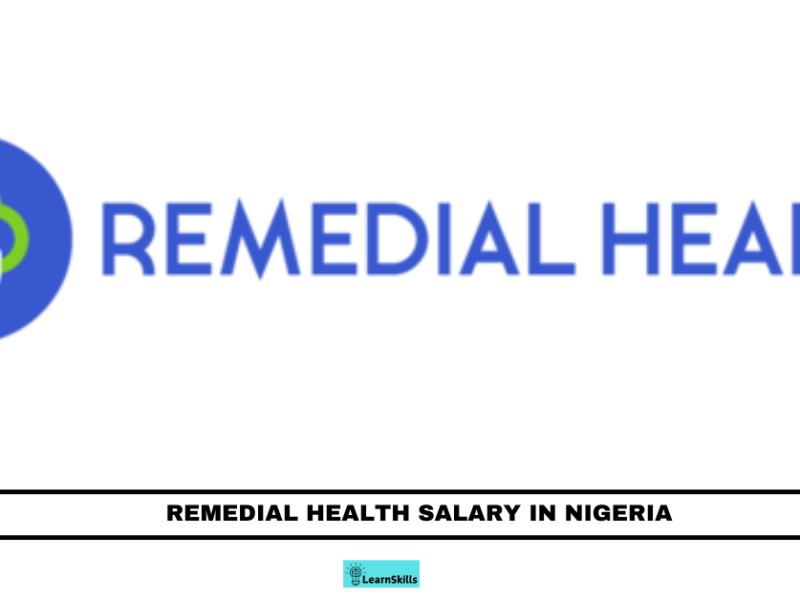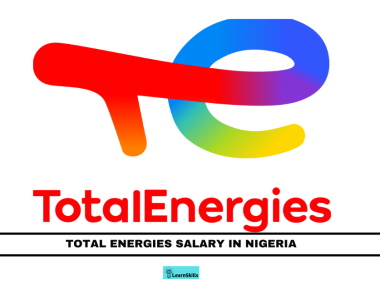If you are considering a career in remedial Health in Nigeria, you will find that salaries can vary significantly based on position, experience, and specific skills.
The salary for a Medical Sales Representative at Remedial Health ranges from N1,200,000 to N1,440,000 annually. This competitive pay reflects the growing demand for skilled professionals in the medical sales industry.
In this blog post, you will discover more about the salary structures at Remedial Health, the factors that influence these earnings, and how you can position yourself for success in the medical job market in Nigeria.
Overview of Remedial Health in Nigeria
Remedial Health is a growing company in Nigeria’s medical sector. It focuses on the wholesale distribution of medicines and medical devices. The aim is to make healthcare more accessible across Africa.
The company is building partnerships with pharmacies and healthcare providers, thereby improving the supply chain for medical products in Nigeria.
Here are some key points about Remedial Health:
- Location: Based in Nigeria, with services for the broader African market.
- Mission: To enhance healthcare access through efficient distribution.
- Job Opportunities: Offers various positions in medical sales and administration.
Salaries at Remedial Health reflect the local market. For example, medical sales representatives earn between ₦1,200,000 and ₦1,440,000 annually. This range can attract talent looking to make a difference in healthcare.
As Remedial Health expands, it aims to contribute significantly to Nigeria’s healthcare system. The company’s growth may also create additional job opportunities, supporting local economies and improving health outcomes for many.
Current Salary Structures for Remedial Health Professionals
In Nigeria, salaries for remedial health professionals vary based on their roles and the type of healthcare facility they work in.
Pharmacy Operations Salaries
Pharmacy operations play a crucial role in the healthcare system. Professionals like pharmacists and pharmacy technicians earn between ₦1,200,000 and ₦1,440,000 annually. Compensation can vary based on experience, location, and specific job roles.
- Pharmacist: ₦1,200,000 – ₦2,500,000
- Pharmacy Technician: ₦800,000 – ₦1,200,000
These figures can change based on the pharmacy’s size and location. Larger pharmacy chains or operations linked with hospitals often offer higher salaries.
Hospital and Clinic Health Worker Salaries
Salaries for health workers in hospitals and clinics also show significant variation. The following are general salary ranges for key roles:
- Registered Nurse (RN): ₦51,000 – ₦350,000 monthly (₦612,000 – ₦4,200,000 annually)
- Medical Laboratory Scientist: ₦1,000,000 – ₦3,000,000 annually
- Physiotherapist: ₦1,200,000 – ₦3,000,000 annually
Health workers’ salaries depend heavily on their qualifications, experience, and the size of the healthcare facility. Larger hospitals may provide better benefits and earnings compared to smaller clinics.
Factors Affecting Salary Levels in Nigeria
Several key factors influence salary levels for health workers in Nigeria, They include qualifications, geographical location, and the type of healthcare facility where individuals work.
Qualifications and Experience
Your qualifications and experience play a significant role in determining your salary. In Nigeria’s healthcare system, the level of education often corresponds with pay scales.
Due to their extensive training, Medical doctors and specialists earn more than nurses or health technicians.
Experience increases earning potential. Health workers with more years in the field receive higher salaries. This is especially true for those who have gained additional skills or certifications within their specialties.
Geographical Location
The geographical location of your workplace can considerably affect your salary. Major cities like Lagos and Abuja often offer higher salaries than smaller towns or rural areas. This wage disparity is due to the higher cost of living in urban centers and the demand for skilled health workers.
In remote areas, facilities might struggle to attract qualified professionals. To address this, some clinics and hospitals may offer incentives, such as higher pay or bonuses, to draw health workers to less populated regions.
Type of Healthcare Facility
The type of healthcare facility where you work influences your salary level as well. Private hospitals and clinics typically offer higher wages than public facilities. This is because private sectors aim to attract skilled staff and may have more financial resources.
Additionally, specialty hospitals that focus on specific areas, such as cardiology or oncology, might offer premium salaries to attract top talent.
Comparison with Other Health-Related Salaries in Africa
In Nigeria, health workers often receive lower salaries than their peers in other African countries. For instance, a medical officer in Nigeria may earn around 180,000 naira monthly.
This figure is significantly lower than what doctors earn in South Africa, where salaries can be up to 40 times higher.
Salary Comparison Table:
| Country | Average Monthly Salary (USD) |
|---|---|
| Nigeria | ~$450 (180,000 naira) |
| South Africa | ~$2,500 |
| Kenya | ~$600 |
| Ghana | ~$800 |
In Nigeria, medical professionals also face challenges like limited hazard pay. Reports indicate that doctors receive a mere 5,000 naira (about $12.95) as monthly hazard allowances.
Nigerian health workers struggle with lower remuneration and resources compared with countries like Kenya and Ghana. This discrepancy impacts their work conditions and overall job satisfaction.
Remedial health professionals, including nurses and medical assistants, experience similar pay gaps. The difference in earnings between various health-related roles further highlights the need to pay attention to salaries across the continent.
These salary disparities can influence the quality of healthcare services you receive and the ability of health workers to provide adequate care.
Challenges and Opportunities in Remedial Health Employment
There are significant challenges linked to procurement and supply chains in Remedial Health. However, technological advancements, including automation, also present new opportunities for growth and efficiency.
Procurement and Supply Chain Issues
Procurement in healthcare can be complex. You may face challenges in sourcing medications and medical supplies. Delays in delivery and price fluctuations can impact your work environment.
For example, the limited availability of essential medications may hinder patient care. Health tech companies like Remedial Health aim to address these issues by securing funding and improving supply chain processes.
Understanding local regulations and building relationships with suppliers is key. You can also explore alternatives, such as bulk buying, to ensure a steady supply of medications.
Advancements and Automation in Remedial Health
Technology is transforming the healthcare landscape. Automation can streamline various processes, making your job easier and more efficient. You might use robots for tasks like inventory management or data entry.
These advancements can lead to improved accuracy and reduced workloads. Tracking of medication gets better and decision-making becomes faster with these tools.
Your role may shift to focus more on patient care and less on administrative tasks. Embracing technology can enhance your career prospects in the Remedial Health sector. You can position yourself as a vital asset to your organization by staying updated on these advancements.
Optimizing Salary with Additional Skills
It is vital to focus on building relevant skills to enhance your salary in Remedial health. Two key areas to consider are obtaining certifications and mastering negotiation techniques for better remuneration.
Certifications and Specializations
Certifications can significantly boost your salary potential in remedial health. They showcase your expertise and commitment to your field. Here are some valuable certifications you might consider:
- Certified Health Education Specialist (CHES): Focuses on health education and community health.
- CPR and First Aid: Essential for emergency preparedness in health settings.
- Project Management Professional (PMP): Valuable if you manage health projects.
Specializations can also set you apart. You might delve into areas like public health management or disease prevention. These additional qualifications can lead to higher paying positions, particularly in Nigerian jobs where specialized skills are in demand.
Negotiation Techniques for Remuneration
Once you have enhanced your qualifications, it is crucial to negotiate effectively for your salary. Start by researching salary trends in your field and region. Websites like Glassdoor can help you understand average salaries for similar roles.
When negotiating, consider these strategies:
- Prepare your case: Gather evidence of your skills and achievements.
- Practice your pitch: Be confident when discussing your value.
- Be flexible: If a higher salary isn’t possible, consider benefits like additional vacation days or training opportunities.
These techniques can help you advocate for yourself during salary discussions and may lead to better offers in your role at Remedial Health.










